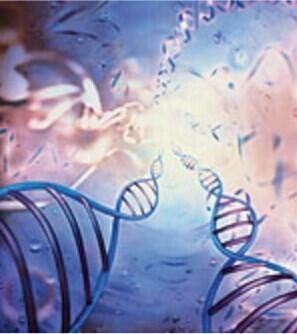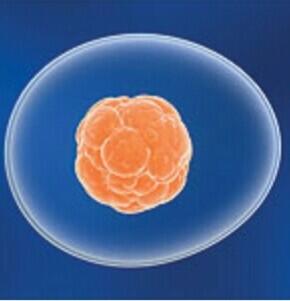- Beranda
- Komunitas
- Entertainment
- The Lounge
PERKEMBANGAN RIS MODIFIKASI DNA UTK REGENERASI SEL SEHINGGA MANUSIA BISA HIDUP ABADI
TS
ian.nelson
PERKEMBANGAN RIS MODIFIKASI DNA UTK REGENERASI SEL SEHINGGA MANUSIA BISA HIDUP ABADI
Karena gak ada artikel berbahasa indonesia yang komprehensif bahas hal ini jadi ane copas langsung aja bahasa englishnya,jangan protes gak ngerti ya gan..
Bahasa inggris itu jaman sekarang bahasa receh,bego banget kalo ga bisa. Ane ga pake google translate karena terjemahannya hancur,dan ane mager translate atu-atu

Rewriting the Aging Program
Rewriting the Aging Program
We live in an exciting time. Many scientists now agree that there are genetic mechanisms that control the aging process, and the implication of this is that it will eventually become possible to reverse aging and cure the diseases of aging.
We still have no comprehensive model explaining how aging occurs, but we know a great deal about how aging manifests itself, and we are beginning to learn how to reverse it.
This becomes evident to anyone who reads The Future of Aging, a massive scholarly volume that includes articles by some of the most prominent researchers in the field.6 In June of this year I spoke to Dr. Gregory Fahy, the editor-in-chief of the book, while he was attending the annual American Aging Association meeting. “One of the purposes of this book was to present the case for genetic causes of aging in a way that my colleagues will find difficult to ignore,” Dr. Fahy told me.
Why, then, do some scientists—even within the aging field—remain skeptical?
“Aging is not just due to local wear and tear,” Fahy concludes. “For example, in flies and worms, it has been shown to be a process controlled in significant part by the brain.”6
Dr. Fahy’s outlook is strongly supported by much work on C. elegans, a small nematode (worm) that is widely used by biologists because it is so easily studied. At the same time, like all living things, it has its own DNA, bearing some resemblance to our own. It also has organs, intestines, and ganglia (nerve cell clumps that operate in some cases like our brains), eats food and reproduces, making it an ideal model for testing genetic modifications. Fahy reports that in recent work, the Shmookler-Reis lab succeeded in creating a genetic variant of C. elegans that has ten times the normal life span of the standard organism.6 Cynthia Kenyon and her coworkers had previously reported a six-fold life span increase in Science magazine.7 These astonishing changes in longevity were entirely caused by reducing the expression of a few master genes.
Similarly, gene expression changes are the major explanation for the results reported by Dr. Michael Rose, who claims to have quadrupled the average life span of fruit flies merely by selective breeding.8 “The idea that aging is just a cumulative process of damage is fundamentally incorrect,” Rose commented when I spoke to him about his work. As a coauthor of the new book Does Aging Stop? from Oxford University Press, Rose points out that some organisms already cease to age late in life. “We have fly populations where 40% of the cohort stops aging,” he says.

WHAT YOU NEED TO KNOW: ACHIEVING PHYSICAL IMMORTALITY
Achieving Physical Immortality
Older and younger people demonstrate differences in gene expression.
Restoring youthful gene expression may help turn back the clock on aging and potentially extend healthy life span.
In animal models, scientists have dramatically extended life span by modulating the expression of a few genes.
Environmental influences such as diet and exercise may strongly influence gene expression and longevity.
Mimicking the effects of genes associated with extreme longevity may provide another avenue to lengthening life span.
Regenerative therapies developed from adult or embryonic stem cells seek to reverse aging by regenerating tissues or organs.
Nutrigenomics is the field of nutritional interventions developed on a genetic basis.
The field of anti-aging medicine is poised for tremendous growth and advancement in coming years, similar to what the field of computer science has seen in the past 60 years.
Why, then, do some scientists—even within the aging field—remain skeptical?
Dr. Rose suggests that processes in biology are making a transition from being described entirely by words to being defined by mathematics. “The less mathematical scientists are, the longer it takes for them to change their minds,” he says. “Words give you much more opportunity for self-deception. Mathematics allows predictions that can be verified. Galileo was influential because he replaced words with equations.”

Gregory Fahy sees biological conservatism as being simply a facet of human nature. “Most scientists tend to be scientifically conservative,” he says. “They’re thinking about their next experiment and not necessarily about the broader relationships between genes and aging. And most biologists are discovery-oriented, not intervention-oriented.
Lanjut di komen ke 2...
Bahasa inggris itu jaman sekarang bahasa receh,bego banget kalo ga bisa. Ane ga pake google translate karena terjemahannya hancur,dan ane mager translate atu-atu

Rewriting the Aging Program
Rewriting the Aging Program
We live in an exciting time. Many scientists now agree that there are genetic mechanisms that control the aging process, and the implication of this is that it will eventually become possible to reverse aging and cure the diseases of aging.
We still have no comprehensive model explaining how aging occurs, but we know a great deal about how aging manifests itself, and we are beginning to learn how to reverse it.
This becomes evident to anyone who reads The Future of Aging, a massive scholarly volume that includes articles by some of the most prominent researchers in the field.6 In June of this year I spoke to Dr. Gregory Fahy, the editor-in-chief of the book, while he was attending the annual American Aging Association meeting. “One of the purposes of this book was to present the case for genetic causes of aging in a way that my colleagues will find difficult to ignore,” Dr. Fahy told me.
Why, then, do some scientists—even within the aging field—remain skeptical?
“Aging is not just due to local wear and tear,” Fahy concludes. “For example, in flies and worms, it has been shown to be a process controlled in significant part by the brain.”6
Dr. Fahy’s outlook is strongly supported by much work on C. elegans, a small nematode (worm) that is widely used by biologists because it is so easily studied. At the same time, like all living things, it has its own DNA, bearing some resemblance to our own. It also has organs, intestines, and ganglia (nerve cell clumps that operate in some cases like our brains), eats food and reproduces, making it an ideal model for testing genetic modifications. Fahy reports that in recent work, the Shmookler-Reis lab succeeded in creating a genetic variant of C. elegans that has ten times the normal life span of the standard organism.6 Cynthia Kenyon and her coworkers had previously reported a six-fold life span increase in Science magazine.7 These astonishing changes in longevity were entirely caused by reducing the expression of a few master genes.
Similarly, gene expression changes are the major explanation for the results reported by Dr. Michael Rose, who claims to have quadrupled the average life span of fruit flies merely by selective breeding.8 “The idea that aging is just a cumulative process of damage is fundamentally incorrect,” Rose commented when I spoke to him about his work. As a coauthor of the new book Does Aging Stop? from Oxford University Press, Rose points out that some organisms already cease to age late in life. “We have fly populations where 40% of the cohort stops aging,” he says.

WHAT YOU NEED TO KNOW: ACHIEVING PHYSICAL IMMORTALITY
Achieving Physical Immortality
Older and younger people demonstrate differences in gene expression.
Restoring youthful gene expression may help turn back the clock on aging and potentially extend healthy life span.
In animal models, scientists have dramatically extended life span by modulating the expression of a few genes.
Environmental influences such as diet and exercise may strongly influence gene expression and longevity.
Mimicking the effects of genes associated with extreme longevity may provide another avenue to lengthening life span.
Regenerative therapies developed from adult or embryonic stem cells seek to reverse aging by regenerating tissues or organs.
Nutrigenomics is the field of nutritional interventions developed on a genetic basis.
The field of anti-aging medicine is poised for tremendous growth and advancement in coming years, similar to what the field of computer science has seen in the past 60 years.
Why, then, do some scientists—even within the aging field—remain skeptical?
Dr. Rose suggests that processes in biology are making a transition from being described entirely by words to being defined by mathematics. “The less mathematical scientists are, the longer it takes for them to change their minds,” he says. “Words give you much more opportunity for self-deception. Mathematics allows predictions that can be verified. Galileo was influential because he replaced words with equations.”

Gregory Fahy sees biological conservatism as being simply a facet of human nature. “Most scientists tend to be scientifically conservative,” he says. “They’re thinking about their next experiment and not necessarily about the broader relationships between genes and aging. And most biologists are discovery-oriented, not intervention-oriented.
Lanjut di komen ke 2...
Diubah oleh ian.nelson 26-06-2016 00:37
0
3.2K
35
Komentar yang asik ya
Urutan
Terbaru
Terlama
Komentar yang asik ya
Komunitas Pilihan